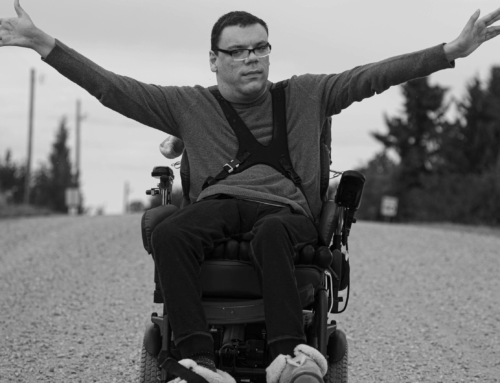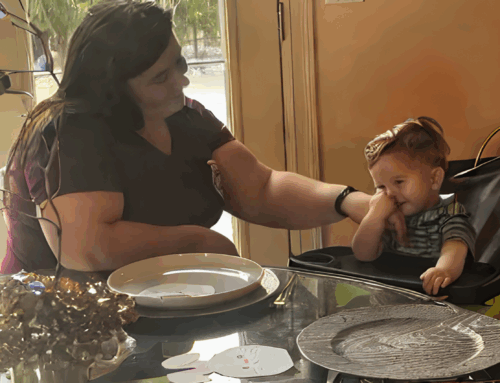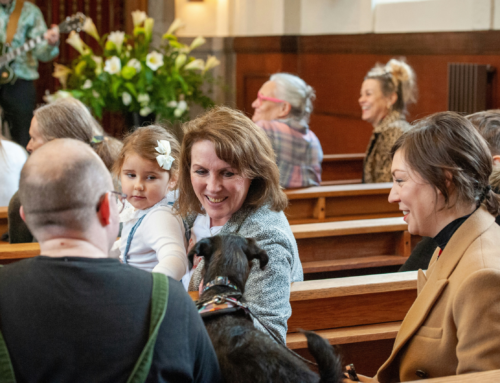 Today we hear from Dwayne Milley, Vice President of Christian Horizons Global. Dwayne has a heart for people with disabilities around the world and seeing them belong to communities. He lives with his wife Karen and daughter Deepika in Toronto, Ontario. You can learn more about Christian Horizons’ international work at www.christian-horizons.org/where-we-serve/global.
Today we hear from Dwayne Milley, Vice President of Christian Horizons Global. Dwayne has a heart for people with disabilities around the world and seeing them belong to communities. He lives with his wife Karen and daughter Deepika in Toronto, Ontario. You can learn more about Christian Horizons’ international work at www.christian-horizons.org/where-we-serve/global.
Have you ever read a story in the Bible for the 10th time and all of a sudden you see something you hadn’t seen before? That happened to me last week as I was working my way through 2 Samuel.
Mephibosheth is a man with a disability. He’s the son of Jonathan, grandson of King Saul. In Old Testament terms, he was ‘lame’. As the story goes, when his caregiver learned of the deaths of King Saul and Jonathan, she left in a hurry with Mephibosheth, tripped and dropped him. Likely his legs or feet were broken and then he didn’t get proper medical attention. You can read about it in 2 Samuel 4, but the story goes like this: Jonathan had a son, he became disabled, his name was Mephibosheth.
If like me, you knew the story, you know that later (in 2 Samuel 9) David, now King, wished to honour someone in King Saul’s family. He found Ziba, someone who had been a servant in King Saul’s household, and Ziba told him, “Jonathan has a son who is disabled.” Ziba didn’t even say Mephibosheth’s name.
Mephibosheth came to King David in humility and acknowledged his undeserving position, referring to himself as a ‘dead dog’. He considered himself less than worthless. David said, “Don’t be afraid, I will certainly show you kindness for your father Jonathan’s sake. I will give back to you all the land of your grandfather Saul, and you will always eat at my table.” (verse 7, GWT).
This was the part of the story I knew all along. As it is, it’s pretty powerful – both for those involved and for the imagery – someone forgotten becoming known, or a place at the King’s table for someone with a disability. This stuff could preach quite nicely in our world of faith and disability.

Hyatt Moore, Luke 14 Banquet
Now for the part of the story I hadn’t notice before. It occurs between these two accounts, part two of a three part story. In between the first two times we read about Mephibosheth and his disability, there’s another story in 2 Samuel 5 – the account of King David’s capture of Jerusalem.
2 Samuel 5:6-10 (GWT):
The king and his men went to Jerusalem to attack the Jebusites, who lived in that region. The Jebusites told David, “You will never get in here. Even the blind and the lame could turn you away” (meaning that David could never get in there). But David captured the fortress Zion (that is, the City of David). That day David said, “Whoever wants to defeat the Jebusites must reach the lame and the blind who hate me by using the water shaft.” So there is a saying, “The blind and the lame will not get into the palace.” David lived in the fortress and called it the City of David. He built the city ⌊of Jerusalem⌋ around it from the Millo to the palace. David continued to grow more powerful because the Lord God of Armies was with him.
Wait. What? In case you didn’t get it, here it is again in chronological order:
- First, Mephibosheth becomes disabled as a boy (2 Sam. 4)
- Second, there is a saying in Israel, “The blind and the lame will not get into the palace” (2 Sam. 5)
- Third, Mephibosheth was welcomed into the palace and to the King’s table (2 Sam 9)
It is more than interesting to me that the authors of 2 Samuel deliberately included these three stories, highlighting Mephibosheth’s disability more than Mephibosheth himself.
Not only did ‘the lame’ get into the palace, but he had a name,
and Mephibosheth ate at David’s table as one of the king’s sons” (verse 11, GWT).
King David may have intended on honouring someone in King Saul’s family, but he also became an example for others in Israel. He challenged the common view of the day towards people with disabilities by inviting Mephibosheth into the palace, into his home, and to his table.
Mephibosheth’s story doesn’t end there. Specifically he is mentioned three other times in 2 Samuel (chapters 16, 19 and 21), and each time has broad context. I reference here only to acknowledge that my account isn’t exhaustive and one could mine more deeply his story. For example, it’s further in these later stories that Mephibosheth seems to be recognized first by his name and second by his disability.
For now, I’m struck by King David’s example, intentional or otherwise. I recognize that today we are careful to talk about the gifts and talents that all people bring, but that doesn’t seem to be the emphasis in these stories. Here Mephibosheth seems to be an example of welcome and inclusion. These are first steps towards finding belonging. It was a deliberate part on King David to make this happen, in his own home and in his community.
Here, the application for me, and perhaps you, is personal. Are we deliberate in our own lives to welcome someone with a disability to our table? Are we careful to recognize that person by their name, who they are, rather than their disability?
Helping to create a community of belonging starts with me.
Dwayne has previously a post for the forum called Subversive Healing.
The Luke 14 Banquet image above was painted by Hyatt Moore at Joni and Friends’ 2015 Global Access Conference. Luke 14 continues the theme of inviting others to the table. “The mural depicts a take on Jesus’s parable in Luke 14 where a man prepared a grand banquet but everyone invited was too busy to come. So he instructed his servants to go out and get people from among ‘the poor, the crippled, the blind, and the lame.’ It’s a theme truth with Joni and Friends and the mural will hang prominently in their headquarters and speak to what they’re about.” Learn more about Hyatt Moore on his website and be sure to watch the time-lapse video of the process below.


